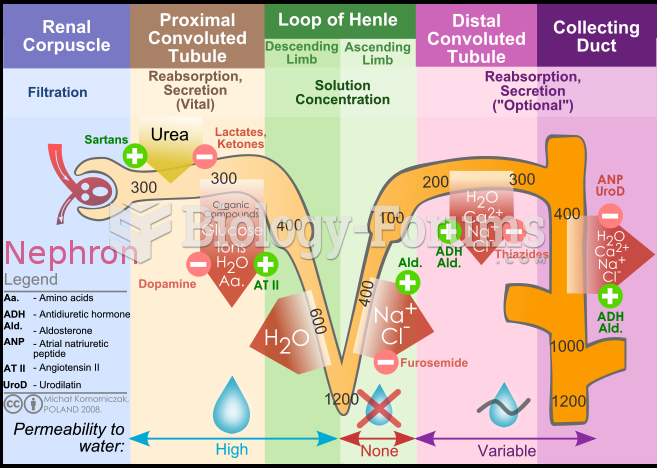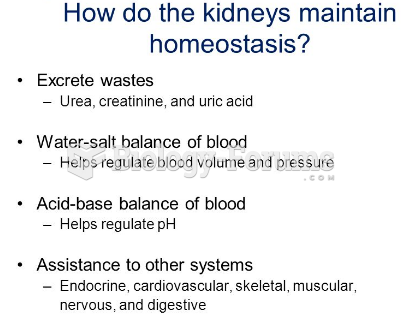|
|
|
On average, someone in the United States has a stroke about every 40 seconds. This is about 795,000 people per year.
Automated pill dispensing systems have alarms to alert patients when the correct dosing time has arrived. Most systems work with many varieties of medications, so patients who are taking a variety of drugs can still be in control of their dose regimen.
Approximately 70% of expectant mothers report experiencing some symptoms of morning sickness during the first trimester of pregnancy.
More than 34,000 trademarked medication names and more than 10,000 generic medication names are in use in the United States.
Drugs are in development that may cure asthma and hay fever once and for all. They target leukotrienes, which are known to cause tightening of the air passages in the lungs and increase mucus productions in nasal passages.
 Invasive species in Canada include (a) zebra mussels, Dreissena polymorpha, (b) sea lamprey, Petromy
Invasive species in Canada include (a) zebra mussels, Dreissena polymorpha, (b) sea lamprey, Petromy
 Leukemia. A blood smear from a patient suffering from leukemia demonstrates the abundance of enlarge
Leukemia. A blood smear from a patient suffering from leukemia demonstrates the abundance of enlarge





